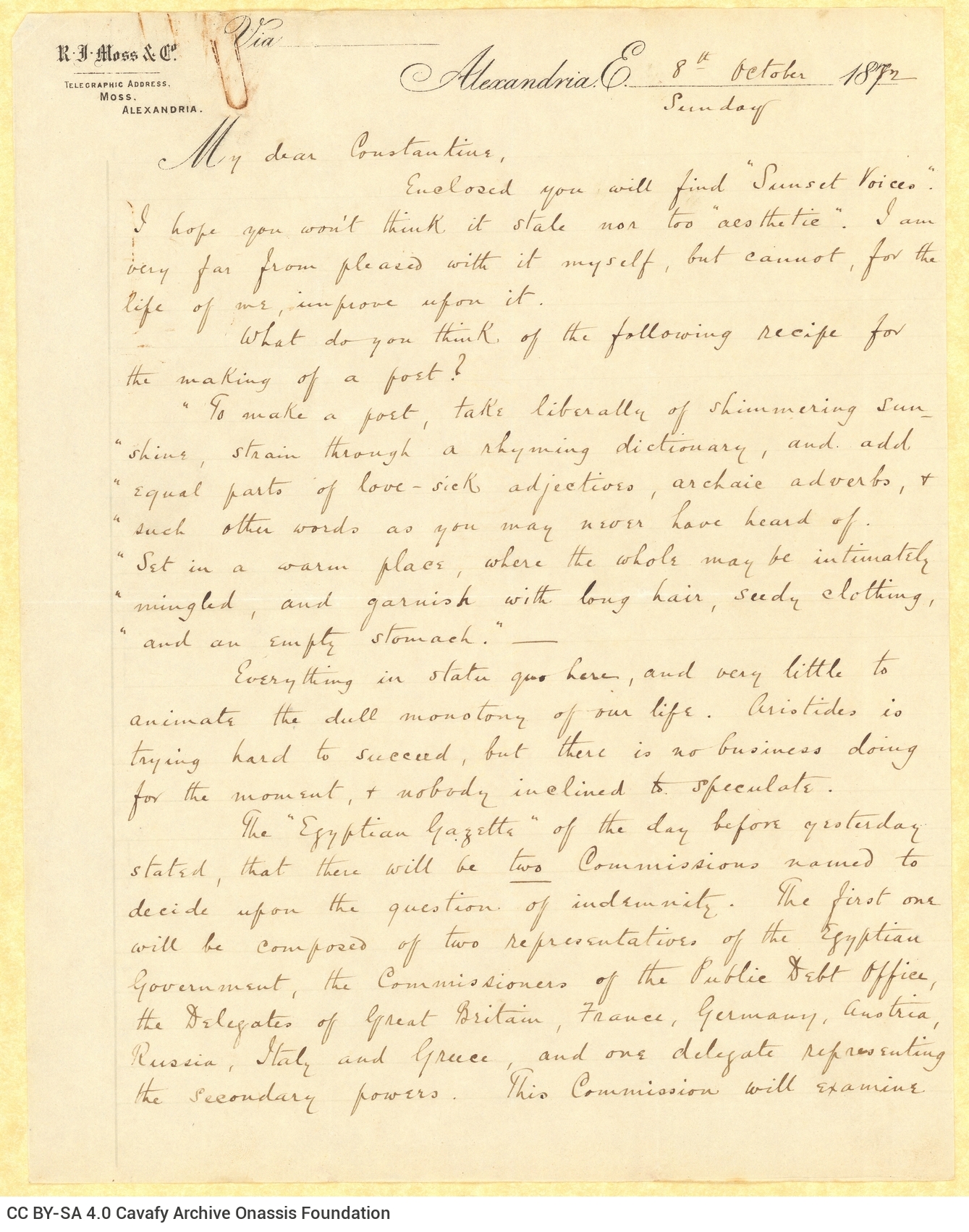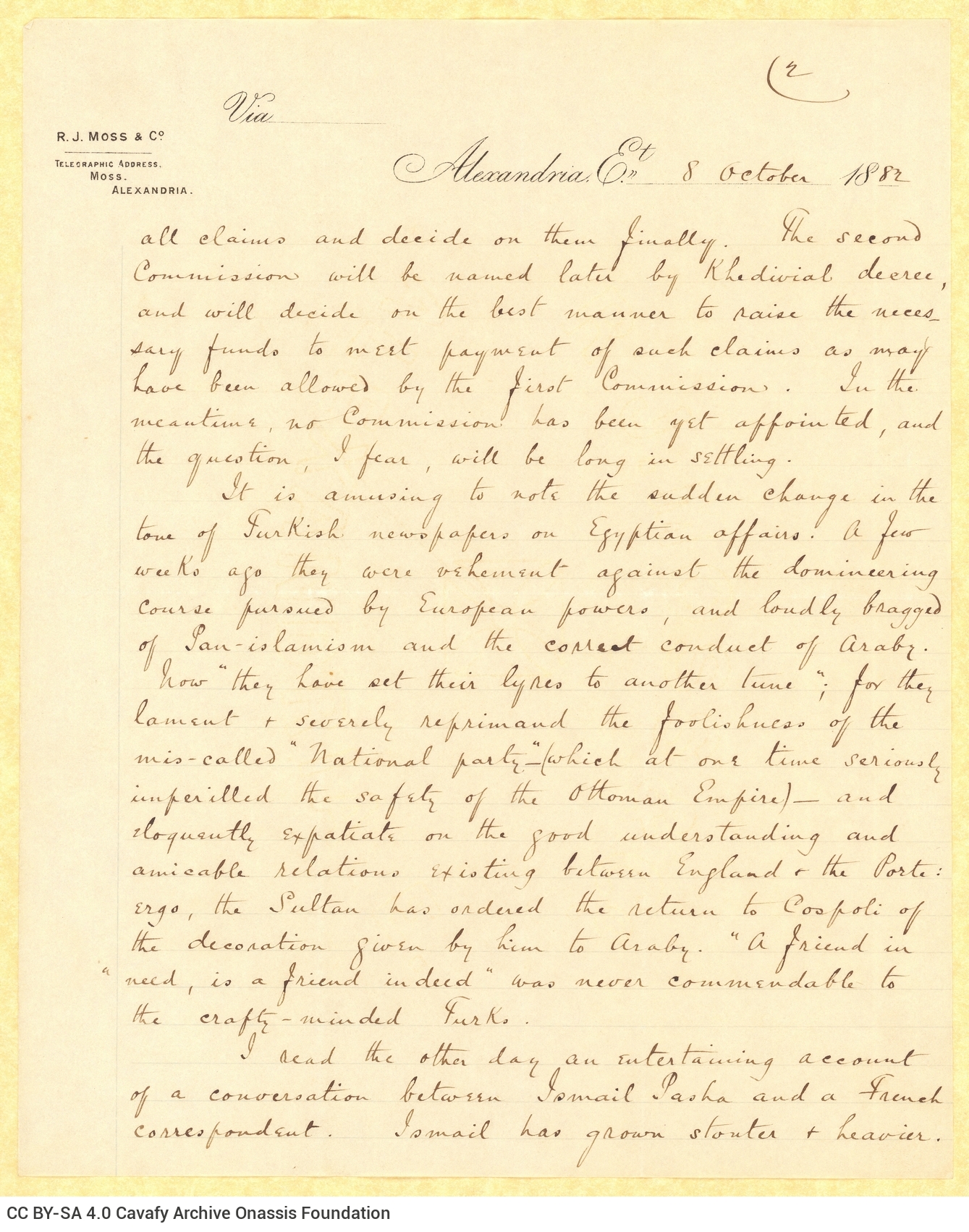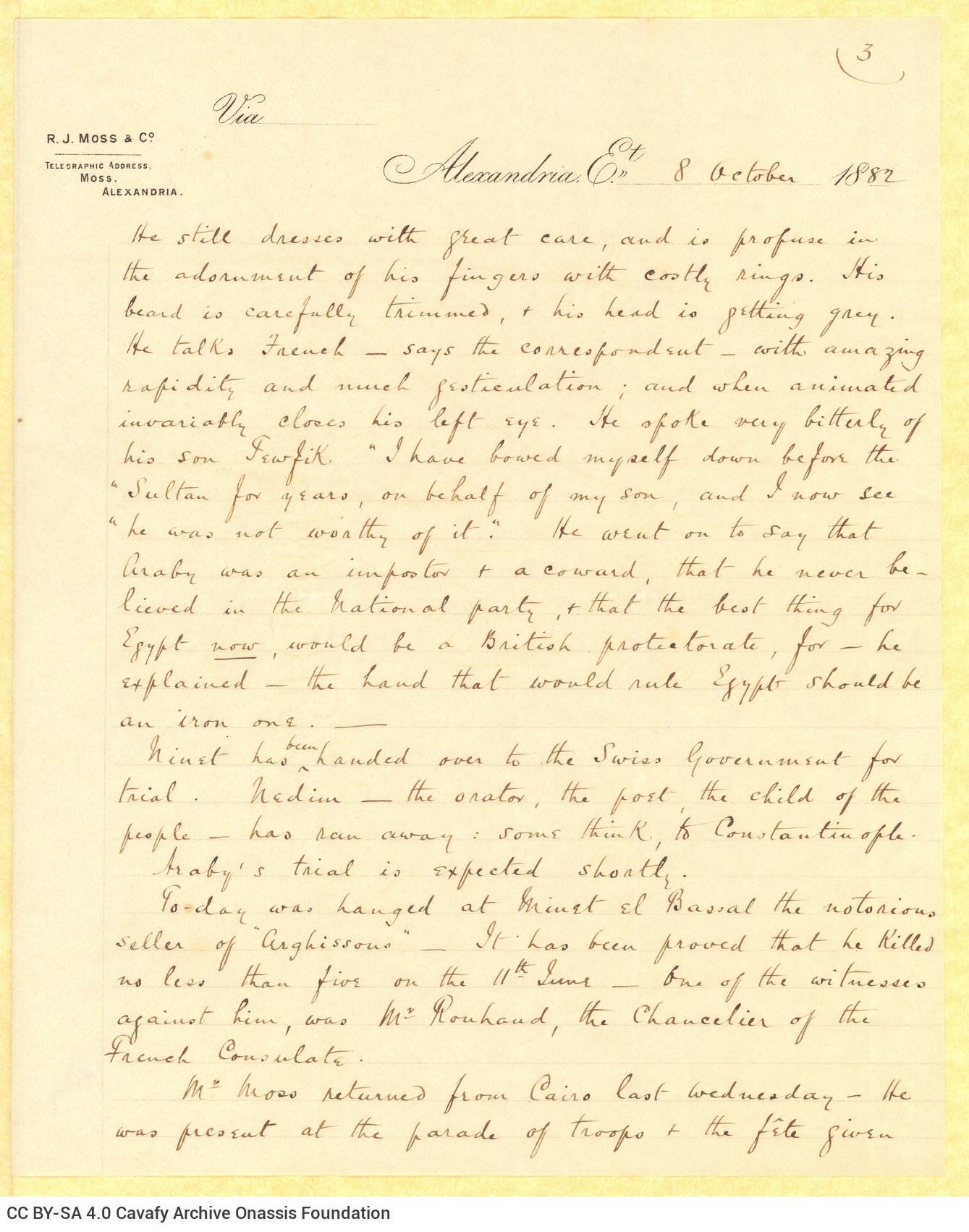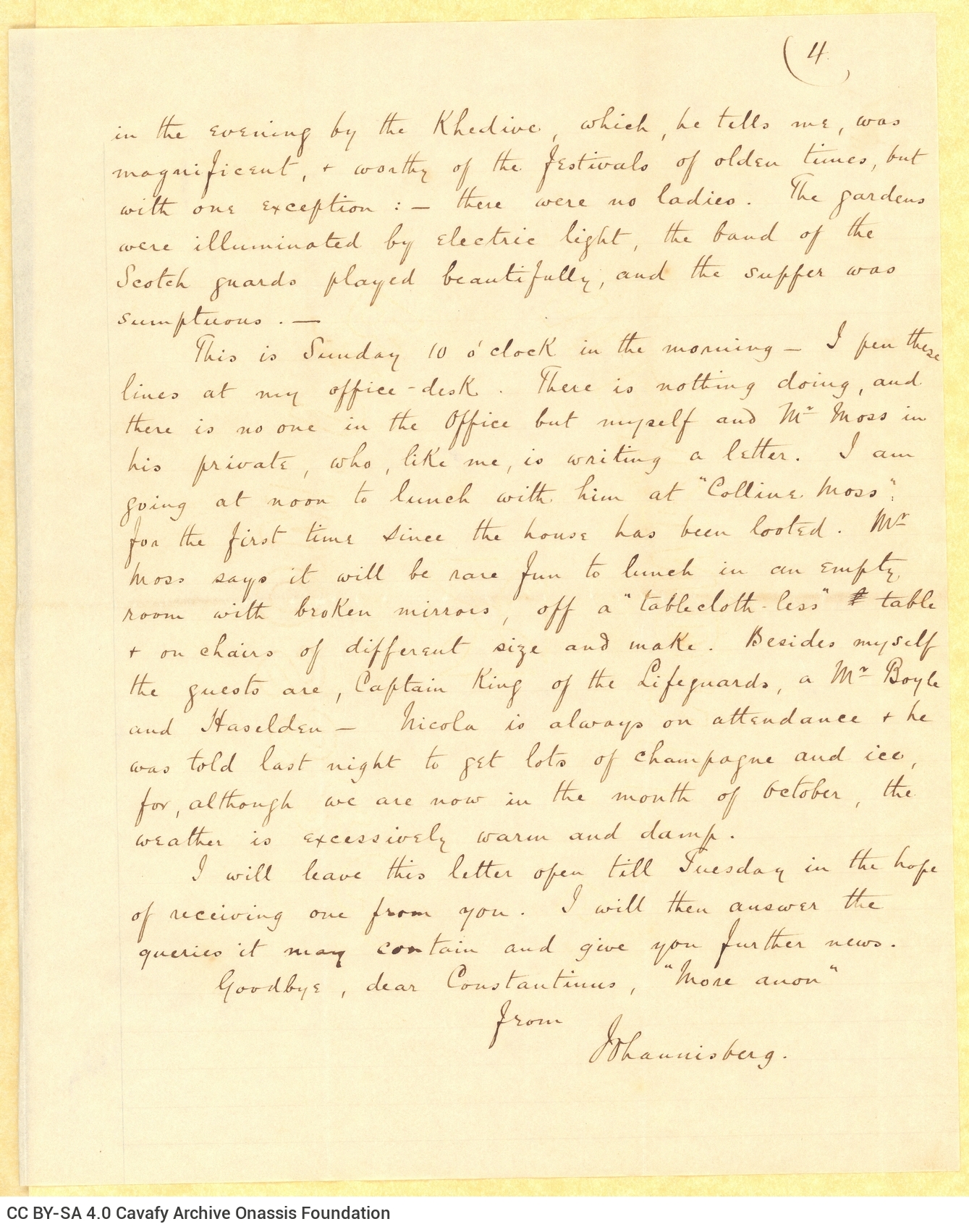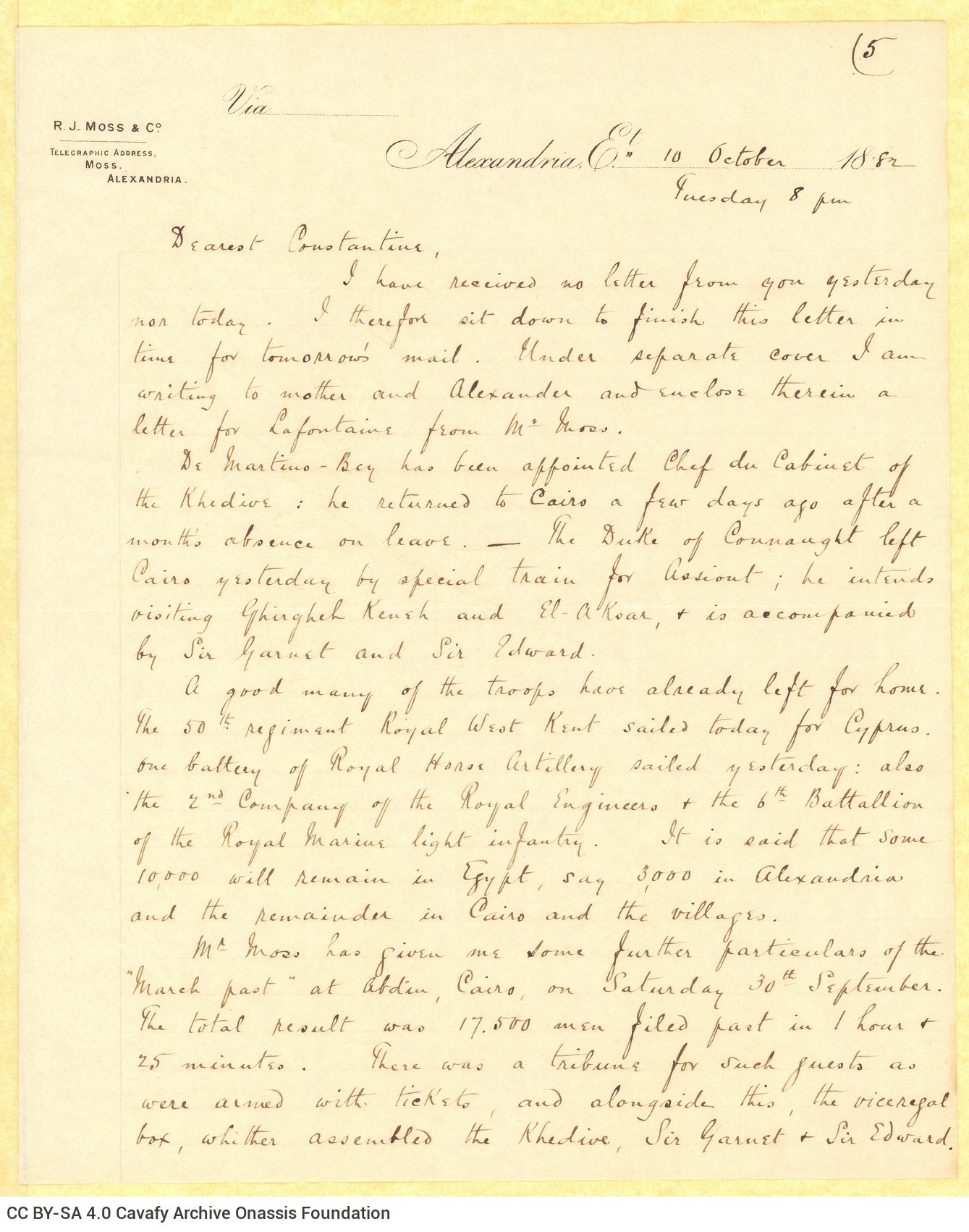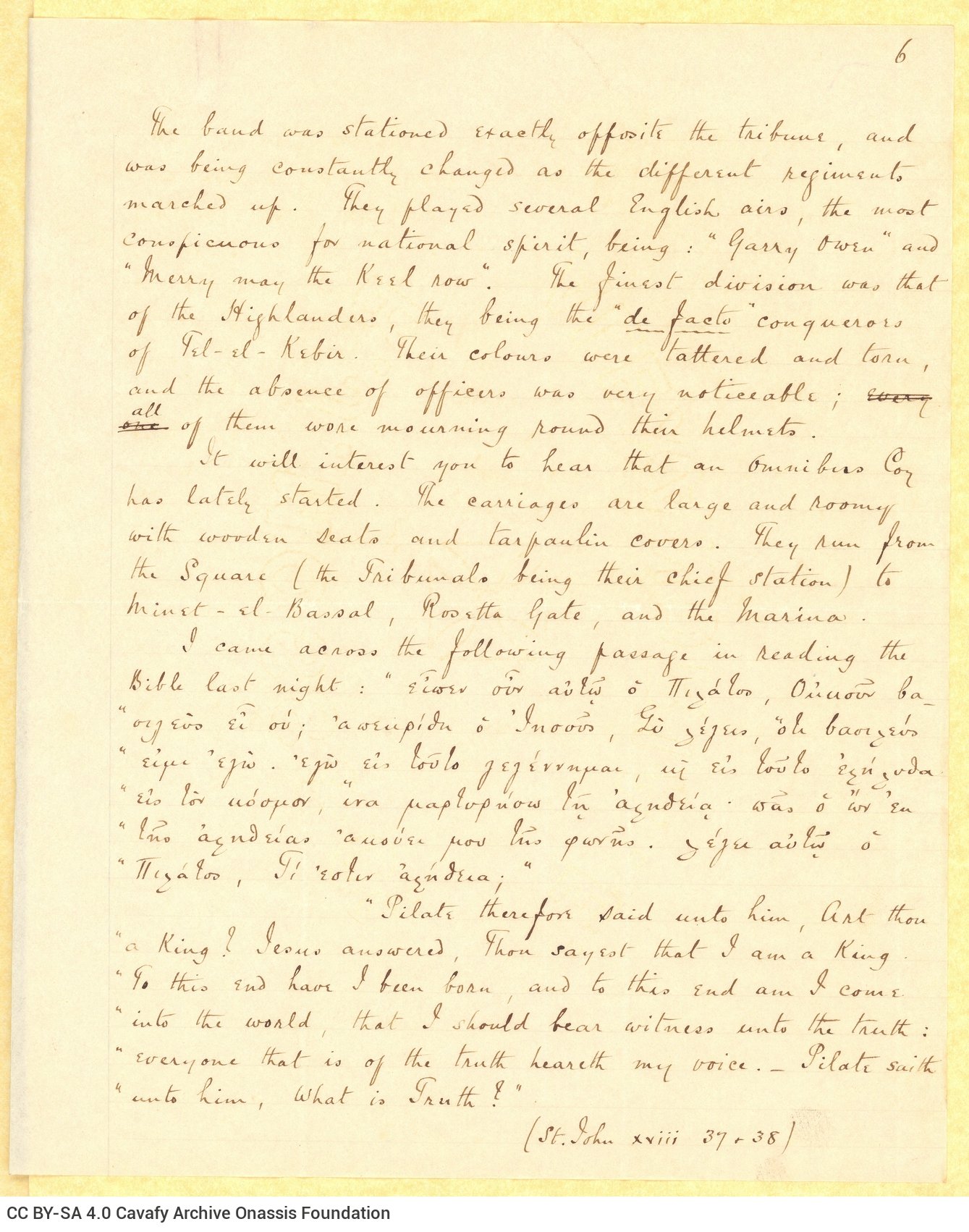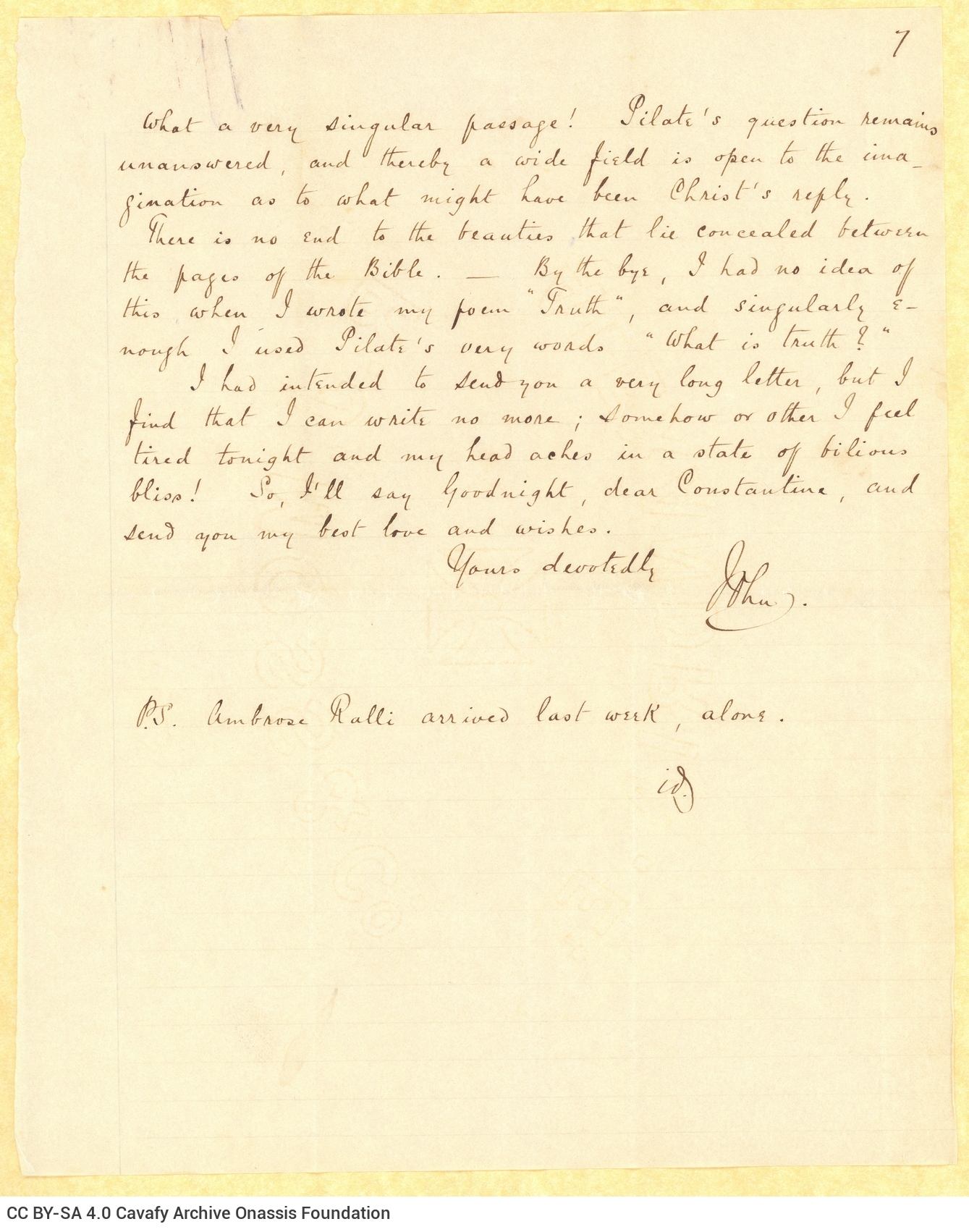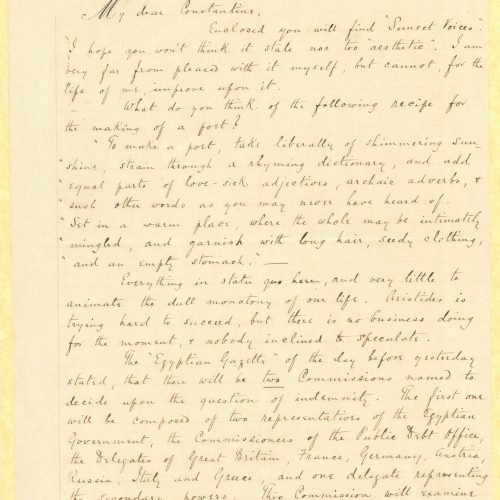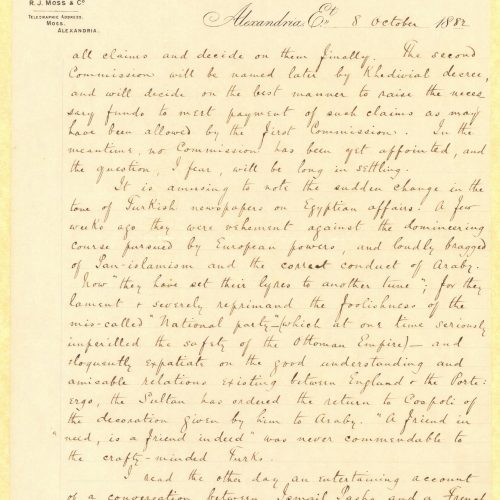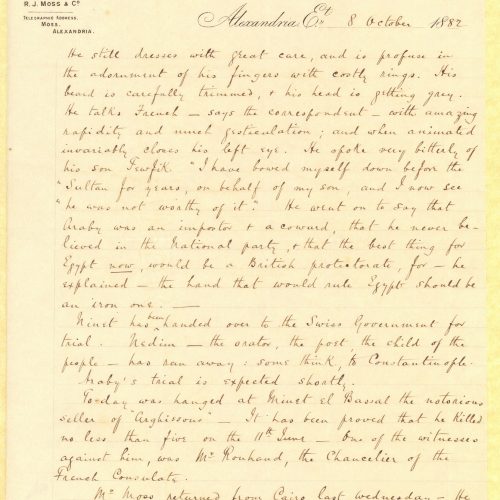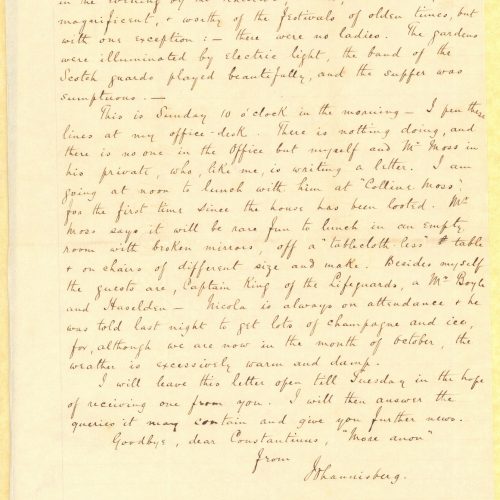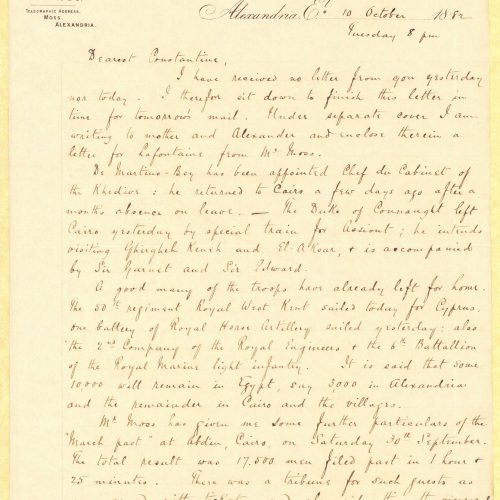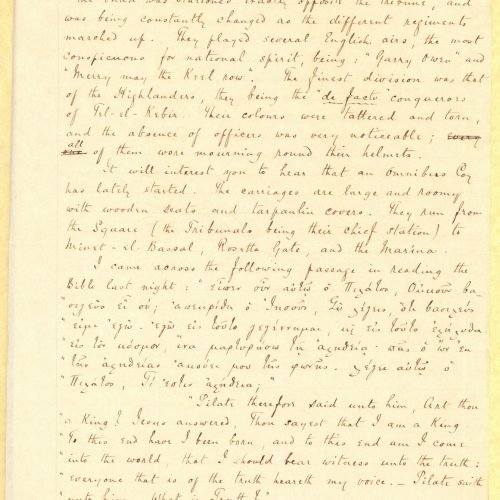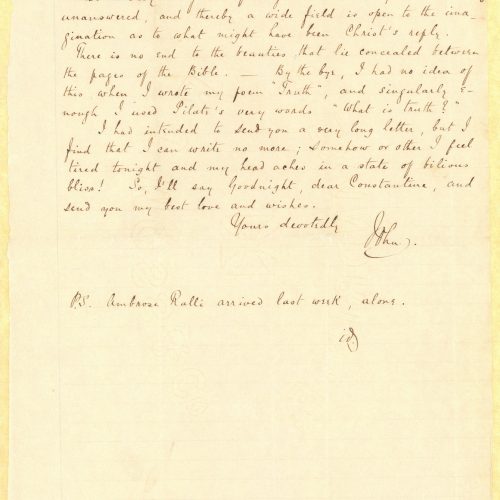υπογράμμιση
υπογράμμιση
πράσινη γραμματοσειρά
κίτρινη γραμματοσειρά
κόκκινη γραμματοσειρά
ΠΕΡΙΓΡΑΦΗ ΨΗΦΙΑΚΟΥ ΑΝΤΙΓΡΑΦΟΥ
ΠΕΔΙΟ ΑΝΑΓΝΩΡΙΣΗΣ
43,5 x 27 εκ.
ΠΕΔΙΟ ΠΛΑΙΣΙΟΥ ΠΑΡΑΓΩΓΗΣ
ΠΕΔΙΟ ΠΕΡΙΕΧΟΜΕΝΟΥ ΚΑΙ ΔΙΑΡΘΡΩΣΗΣ
Χειρόγραφη επιστολή του Τζων Καβάφη προς τον Κ. Π. Καβάφη, σε τρία φύλλα και δύο τετρασέλιδα της εταιρείας R. J. Moss & Co., Alexandria. Οι σελίδες 2-7 αριθμημένες πάνω δεξιά. Αναλυτική ενημέρωση για την πολιτική κατάσταση στην Αίγυπτο και τον ρόλο των αγγλικών στρατιωτικών δυνάμεων και των πολιτικών. Σύντομο χωρίο στα ελληνικά από το Κατά Ιωάννην Ευαγγέλιο.
ΠΕΔΙΟ ΟΡΩΝ ΠΡΟΣΒΑΣΗΣ ΚΑΙ ΧΡΗΣΗΣ
Αγγλική κυρίως
Γραφή με μελάνι. Υδατόσημο: R. J. Moss & Co Alexandria. Φθορά φυσικού τεκμηρίου: οξειδώσεις.
ΠΕΔΙΟ ΠΑΡΑΤΗΡΗΣΕΩΝ
Η επιμέλεια των μεταγραφών των επιστολών του Ιωάννη Κωνσταντίνου Καβάφη προς τον Κ. Π. Καβάφη πραγματοποιήθηκε για πρώτη φορά από την Κατερίνα Γκίκα και αναρτήθηκε στον επίσημο διαδικτυακό τόπο του Αρχείου Καβάφη.
Ο Τζων Καβάφης επισυνάπτει το ποίημά του «Sunset voices».
ΣΗΜΕΙΑ ΠΡΟΣΒΑΣΗΣ
Καβάφης, Ιωάννης Κωνσταντίνος (John), «Επιστολή του John Καβάφη προς τον Κ. Π. Καβάφη» (08, 10.10.1882), Επιστολή, Αρχείο Κ. Π. Καβάφη του Ιδρύματος Ωνάση, GR-OF CA CA-SF02-S01-SS02-F20-SF001-0007 (382), στο: Ψηφιακή Συλλογή του Αρχείου Καβάφη, επιμ. Ίδρυμα Ωνάση, Αθήνα, τελευταία ενημέρωση 01.10.2025: https://doi.org/10.26256/CA-SF02-S01-SS02-F20-SF001-0007.
